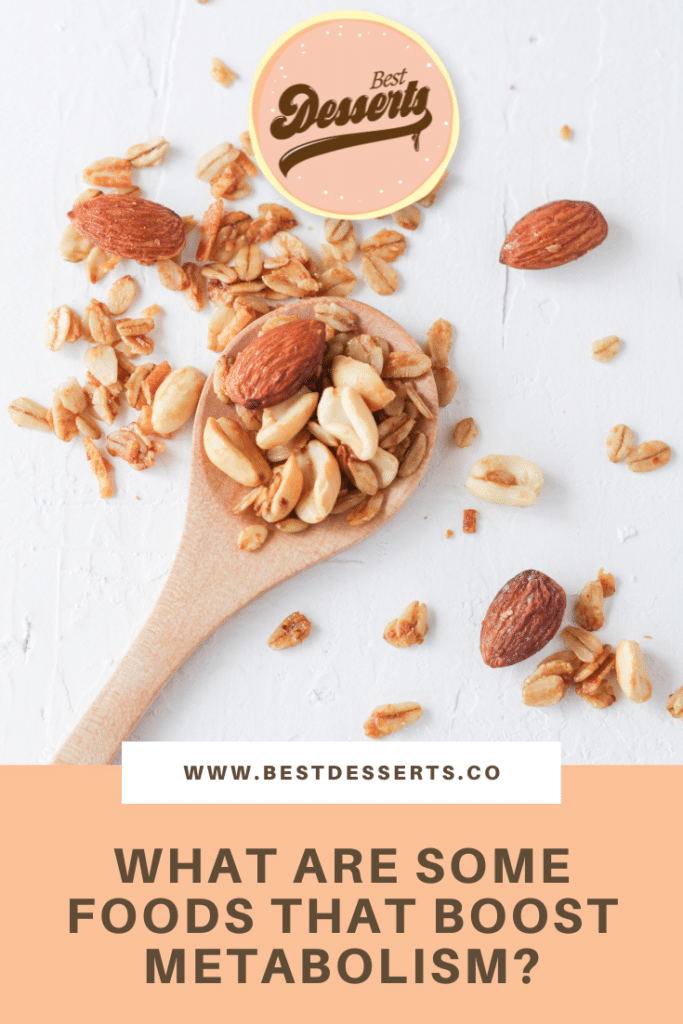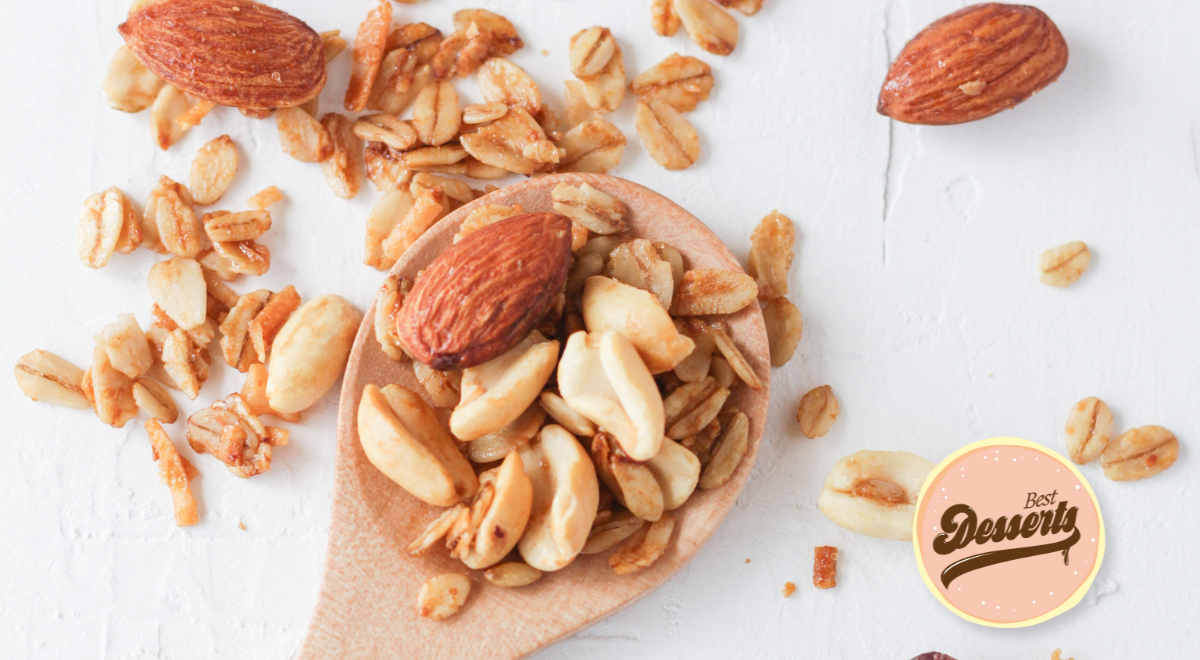Table of Contents
What is metabolism?
Metabolism refers to the chemical processes that occur within the body to maintain life, including everything from digestion and absorption of food to eliminating waste products.
A faster metabolism can lead to weight loss, increased energy levels, and improved overall health. Additionally, as we age, our metabolism naturally slows down, making it more challenging to maintain a healthy weight.
This article aims to provide an overview of the top foods that can help boost metabolism and tips for incorporating them into your diet.
What are the foods that boost metabolism?
A. Protein-rich foods: Protein is essential for building and repairing muscle tissue. Protein is a thermogenic macronutrient that requires the most energy to digest, absorb, and metabolize. Therefore, consuming protein-rich foods can help boost metabolism.
- Meat, poultry, fish, and eggs: These foods are all protein-rich and provide the body with the necessary building blocks to repair and grow muscle tissue.
- Dairy products: Milk, yogurt, and cheese are all protein-rich and can help boost metabolism.
- Beans, lentils, and other legumes: These plant-based sources of protein are also rich in fibre, which can help keep you feeling full and satisfied.
B. Fiber-rich foods: Fiber is an essential nutrient that can help keep your digestion regular and help you feel full and satisfied.
- Fruits and vegetables: Fruits and vegetables are rich in fibre and contain important vitamins and minerals essential for good health.
- Whole grains: Oats, quinoa, and brown rice are fibre-rich and can help boost metabolism.
- Nuts and seeds: They are rich in fibre, healthy fats, and protein, making them a great snack option that can help boost metabolism.
C. Spicy foods: Foods like chilli peppers, ginger, and turmeric can help boost metabolism by increasing thermogenesis or the production of heat in the body.
- Chilli peppers: Chili peppers contain a compound called capsaicin, which increases thermogenesis and boosts metabolism.
- Ginger: Ginger has been used for centuries as a natural remedy to aid digestion and boost metabolism.
- Turmeric: Turmeric is a spice rich in antioxidants and has anti-inflammatory effects, which can help boost metabolism.
D. Green tea and other beverages: Green tea, coffee, and cold water have a thermogenic effect and boost metabolism.
- Green tea: Green tea contains a compound called catechins, which boosts metabolism.
- Coffee: Caffeine can boost metabolism and increase energy levels.
- Coldwater: Drinking cold water can boost metabolism because the body has to work harder to warm the water to body temperature.
How to incorporate these foods into your diet?
A. Meal planning tips: To ensure you’re getting enough of these metabolism-boosting foods, try to include them in your meals and snacks throughout the day. Plan your meals and ensure you have the necessary ingredients to make healthy, metabolism-boosting meals.
B. Recipes and meal ideas:
- Protein-rich breakfast: Start your day with a protein-packed breakfast like scrambled eggs with spinach and whole grain toast.
- Spicy lunch: Add some heat to your lunch with a spicy turkey chilli made with chilli peppers, ginger and turmeric.
- Fibre-rich snacks: Keep a stash of fruits, vegetables, and nuts on hand for healthy snacks that will keep you feeling full and satisfied.
- Green tea or coffee for a metabolism boost: Enjoy a cup of coffee in the morning or as a midday pick-me-up.
C. Recommended portion sizes: It’s important to remember that even healthy foods can be high in calories if consumed in large quantities, so be mindful of portion sizes when incorporating these metabolism-boosting foods into your diet.
Conclusion
To boost metabolism, it’s essential to include a variety of protein-rich foods, fibre-rich foods, spicy foods, and metabolism-boosting beverages. Planning your meals and being mindful of portion sizes can also help.
Remember that a balanced diet is essential for overall health and well-being. While these foods can help boost metabolism, you must also include a variety of other nutrient-dense foods in your diet.
If you’re interested in learning more about boosting metabolism, consider consulting a registered dietitian or a nutritionist. They can work with you to create a personalized plan that meets your specific needs and goals.
In conclusion, boosting metabolism through the proper diet and lifestyle choices can positively impact your overall health, energy levels, and weight management. Incorporating protein-rich foods, fibre-rich foods, spicy foods, and metabolism-boosting beverages into your diet can effectively boost your metabolism.
However, it’s essential to keep in mind that a balanced diet is vital and consulting a registered dietitian or a nutritionist for personalized advice would be beneficial.
Frequently Asked Questions
Q: What is metabolism?
A: Metabolism refers to the chemical processes that occur within the body to maintain life, including everything from digestion and absorption of food to eliminating waste products.
Q: Why is it important to boost metabolism?
A: A faster metabolism can lead to weight loss, increased energy levels, and improved overall health. Additionally, as we age, our metabolism naturally slows down, making it more challenging to maintain a healthy weight.
Q: What are some foods that can boost metabolism?
A: Protein-rich foods, fibre-rich foods, spicy foods, green tea and other beverages boost metabolism.
Q: How many foods should I consume to boost my metabolism?
A: It’s essential to be mindful of portion sizes when incorporating these metabolism-boosting foods into your diet. Overeating of any food, even healthy food, can lead to weight gain. It’s best to consult a registered dietitian or a nutritionist to get a personalized plan that meets your specific needs and goals.
Q: Are there other ways to boost metabolism besides eating certain foods?
A: Yes, in addition to eating the right foods, there are other things you can do to boost metabolism, such as regular exercise, getting enough sleep, and managing stress levels.
Q: Are there any risks associated with boosting metabolism?
A: It is generally safe to boost metabolism by eating a healthy diet and living an active lifestyle. However, if you have a medical condition or are taking medication, you must speak with your doctor before making any changes to your diet or exercise routine.
Q: Is it possible to boost metabolism permanently or just temporarily?
A: Boosting metabolism can be permanent if you maintain a healthy lifestyle, including regular exercise and a balanced diet. However, if you return to an unhealthy lifestyle, your metabolism will likely slow down again.
Read more: What are the best foods to eat to increase metabolism?


